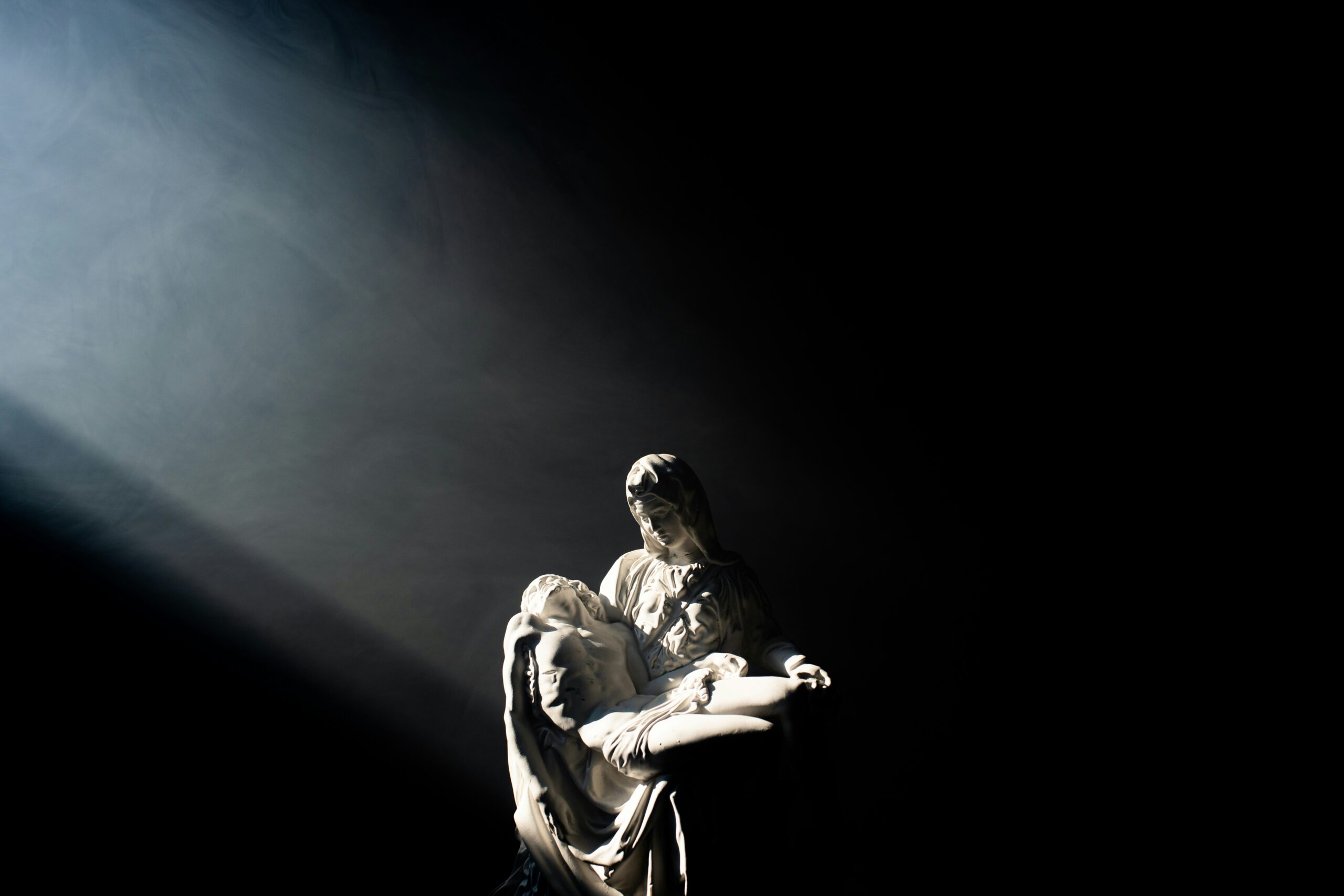How the Message of Easter Calls Us to Surrender Our Lives to Christ
Remember the pandemic that started in 2019? Whether or not every restriction was helpful, fair, or perfectly applied, a common appeal was made: do what’s best for the vulnerable, even if it costs you something. That idea—that we can put ourselves second for the good of someone else—cut against the typical individualistic mindset we have in our culture. Similarly, the cross calls us to a different way of life—hidden faithfulness, humility, and a willingness to die to our personal desires. Even outside of Christianity, there’s a shared human instinct that sacrificing for others is right. That’s not accidental. It’s part of the image of God in us. We were made to love in a way that costs us something. The message of Easter doesn’t deny that impulse—it fulfills it. In Christ, we’re given the clearest vision of sacrificial love, and we’re invited to live it out.
The resurrection of Jesus is the foundation of Christian faith, the moment history shifted, and death was defeated. But resurrection only comes after death. Before the joy of Easter morning was the agony of the cross. And that pattern—death leading to life—is not just Jesus’ story. It’s the pattern He calls every believer to follow.
When Jesus said, “If anyone would come after me, let him deny himself and take up his cross daily and follow me” (Luke 9:23), He wasn’t offering a metaphor for difficult days or minor sacrifices. He was issuing a call to die—to lay down one’s entire self in surrender. For those of us trying to make sense of identity, purpose, and calling, this is not a comfortable invitation. But it is a clear one.
The Cross as a Call to Surrender
In an age of self-expression, self-optimization, and personal branding, the idea of self-denial feels foreign, even offensive. We are told to find ourselves, fulfill ourselves, and promote ourselves. But Jesus calls us to deny ourselves. He calls us to surrender not just our bad habits or wrong beliefs but our entire lives—our ambitions, our relationships, our sense of control.
The cross, in Jesus’ day, was not symbolic. It was a literal instrument of death. When He said “take up your cross,” His disciples understood He was talking about execution. Today, we must hear that call with the same seriousness. To follow Christ is to lay everything at His feet—not as a one-time gesture of emotional devotion, but as a daily act of submission. Jesus didn’t die to make our lives more comfortable. He died to make us new.
Gethsemane: The Model of Surrender
Easter weekend begins in the garden, not the tomb. In Gethsemane, Jesus models the essence of surrender: “Not my will, but yours be done.” He was not indifferent to suffering. He felt the weight of what was coming. He asked for another way. But He submitted to the Father’s will, trusting that obedience was better than ease. That moment was not weakness—it was strength rooted in faith.
You live in a world of options, where autonomy is often treated as the highest good. But the Christian life calls us to submit—not out of fear or obligation, but because we trust the character of the one we’re submitting to. Gethsemane teaches us that surrender is not passive. It is an active choice to trust God’s wisdom above our own.

Dying to Self: A Daily Reality
Jesus’ command includes the word daily for a reason. Dying to self is not a decision made once at a retreat or in a moment of emotional clarity. It is a continual posture of the heart. Each day, we are faced with decisions that ask: Will I live for myself, or for Christ?
This might mean sacrificing comfort for integrity, choosing forgiveness over bitterness, walking away from habits that feed the flesh, or staying faithful in places where obedience feels costly. Sometimes, it means letting go of good things—relationships, opportunities, dreams—because they are not what God is asking of us. This kind of surrender is not always dramatic. Often, it’s quiet, internal, and unnoticed. But it is real, and it is transformative.
Resurrection is the Result, Not the Starting Point
The promise of Easter is not that surrender leads to emptiness but that death leads to resurrection. Jesus didn’t stay in the tomb—and neither do those who follow Him. The way of the cross is painful, but it is not the end. The author C.S. Lewis puts it this way, “Give up yourself, and you will find your real self. Lose your life and you will save it. … Nothing in you that has not died will ever be raised from the dead.” Christ calls us to die to ourselves because only then can we truly live.
This is not abstract spirituality. It’s the concrete reality of Christian discipleship. The life Jesus offers is abundant and eternal—but it requires everything. If we want the life of Christ, we must embrace the way of Christ. And that way always begins with surrender.
Conclusion
The message of Easter is more than a celebration of an event. It’s a call to a way of life—a way marked by the cross. For those who are discerning who they are and what they’re living for, Easter offers both a challenge and a promise. The challenge: to take up your cross, daily. The promise: that in dying to self, you will find true joy in life—not on your terms, but in Christ.
In a culture chasing self-made identity, the cross stands as a radical alternative. It calls us to lay everything down—and in doing so, receive everything that matters.

